
Weather: Sunny. Highs in the upper 80s. Northeast winds 5 to 10 mph. Sunday Night: Mostly clear. Lows in the lower 70s. Northeast winds 5 to 10 mph.
- Daily weather briefing from the National Weather Service in Jacksonville here.
- Drought conditions here. (What is the Keetch-Byram drought index?).
- Check today’s tides in Daytona Beach (a few minutes off from Flagler Beach) here.
- tropical cyclone activity here, and even more details here.
Today at a Glance:
ESL Bible Studies for Intermediate and Advanced Students: 9:30 to 10:25 a.m. at Grace Presbyterian Church, 1225 Royal Palms Parkway, Palm Coast. Improve your English skills while studying the Bible. This study is geared toward intermediate and advanced level English Language Learners.
Grace Community Food Pantry, 245 Education Way, Bunnell, drive-thru open today from noon to 3 p.m. The food pantry is organized by Pastor Charles Silano and Grace Community Food Pantry, a Disaster Relief Agency in Flagler County. Feeding Northeast Florida helps local children and families, seniors and active and retired military members who struggle to put food on the table. Working with local grocery stores, manufacturers, and farms we rescue high-quality food that would normally be wasted and transform it into meals for those in need. The Flagler County School District provides space for much of the food pantry storage and operations. Call 386-586-2653 to help, volunteer or donate.
Palm Coast Farmers’ Market at European Village: The city’s only farmers’ market is open every Sunday from noon to 4 p.m. at European Village, 101 Palm Harbor Pkwy, Palm Coast. With fruit, veggies, other goodies and live music. For Vendor Information email [email protected]
Jesus Christ Superstar at City Rep Theatre, 160 Cypress Point Parkway (City Marketplace, Suite B207), Palm Coast, 3 p.m. Tickets are $30 for adults, $15 for students. Book here. One of the great rock musicals of all time takes us on a spiritual, emotional and provocative journey that enthralls, edifies and invigorates us. With an all female cast, the CRT production explores these compelling themes from a different perspective. The ride of a lifetime.
‘The Great American Trailer Park Musical’ at Daytona Playhouse, 100 Jessamine Blvd., Daytona Beach, 7:30 p.m. except Sundays at 2 p.m. There’s a new tenant at Armadillo Acres and she’s wreaking havoc all over Florida’s most exclusive trailer park. When a stripper on the run comes between the Dr. Phil–loving, agoraphobic and her husband, a storm brews. Directed by: Ashley King and Melissa Cargile.
Al-Anon Family Groups: Help and hope for families and friends of alcoholics. Meetings are every Sunday at Silver Dollar II Club, Suite 707, 2729 E Moody Blvd., Bunnell, and on zoom. More local meetings available and online too. Call 904-315-0233 or see the list of Flagler, Volusia, Putnam and St. Johns County meetings here.
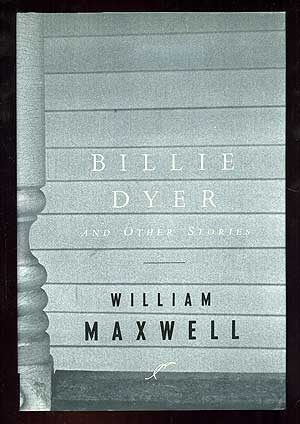 Storytime: William Maxwell was born in Lincoln, Illinois, in 1908, some 55 years after the town was “laid out,” as he writes in “Billie Dyer,” 75 years after the Kikapoo Indians who had been there for generations were booted out by treaty, 43 years after Civil War soldiers returning home brought the first Black people to town under the cover of night, for labor. Maxwell was the fiction editor at The New Yorker from 1936 to 1975 (editing Nabokov, Updike, Salinger, Cheever, O’Hara, Eudora Welty and Isaac Singer, among others). He wrote five novels, mostly autobiographical, starting with They Came Like Swallows, based on his childhood (“a dream canopied with light”) and the loss of his parents during the great flu of 1918: you will rarely feel the immediacy and pain of inexplicable loss as when you read the description of the child seeing the white hands of his dead mother in the coffin. He wrote many short stories, children’s books and essays. For some reason he is not included among America’s greatest writers. I can’t think of another American writer who writes in a style so understated, so unassuming, so limpid. Maybe that’s why: I imagine Maxwell as the guy at a party who tries to make himself as small as possible, disappearing in corners to look at the edge of a bookshelf or have a look though a window to anywhere he’d rather be, preferably a square foot in proximity of the Hudson River, or maybe back in Lincoln, about which he wrote several of his later stories, remembering. “Billy Dyer” is one of those stories. William Dyer was the first Black physician to emerge from Lincoln, in a town that did not easily forgive him the feat until much later in life, long after he’d left and he was sought after on the staff of many hospitals. It could not have been easy for Maxwell to write the story of a Black man. The story succeeds because he doesn’t pretend to tell the story of Dyer’s life so much as recall others’ and his own remembrances, entering into Dyer’s mind only in one brilliant section of the story, when he summarizes a wartime diary Dyer had written in Europe, and that had somehow survived, wartime being World War I. And it is really not Dyer’s story as much as it is the story of a racism’s pernicious harassment–American racism. Some of the story’s most effective passages, told as always with Maxwell’s extreme reserve, contrast the way Dyer is embraced and cherished among the French, who either see him no differently than they see each other or, if they are children, relish the exoticism of his color, with the way his American regimen imported Jim Crow bigotries and violence all the way to the front in France: “Division headquarters issued a bulletin that Negro soldiers would be used to handle mustard-gas cases, because they were less susceptible than whites. (“Why is the Negro less susceptible to mustard gas than the whites? No one can answer.”)” The parenthesis is in the original. Then: “A colored boy who had been convicted of rape in August was hanged or lynched in an open field not far from my infirmary.” And back home, Dyer had to deal with “the situation of educated Negroes in America–how they are not always comfortable with members of their own race, with whom they often have little or nothing in common, and are not accepted by white people whose tastes and interests they share.” The observation may seem a little dated today, the story’s theme and Maxwell’s writing it might draw a criticism or two along the lines of appropriation, but that’s pushing it. Maxwell’s “Dyer” is an attempt to memorialize a remarkable man about whom, in the end, nothing is left, no history, no memorial. Maxwell had described how the first Blacks in Lincoln had been forced to hide during daytime and get a breath of fresh air only at night, and then, to remember to know their place. “Billie Dyer” is a story about that place, from which–one is tempted to say–he had entirely disappeared after his death, when in reality he had been invisible there but for that brief tribute at the end: Even his white contemporaries who had finally celebrated his achievement and included him as one of “the ten most distinguished men that the town had produced” when he was 67 and the town was celebrating its centennial had not thought of using the occasion as more than a token gesture. Coincidentally, I’d read–the very same dawn–the pages from Wendell Berry’s The Hidden Wound, one of his studies of racism, where he describes his boyhood relationship with the adult Nick, a Black farmhand with whom he developed a friendship. As always with Berry, passages of discomfort are never far between under and over the lines–the discomfort he relates, but also the discomfort of the reader for the way he sometimes relates what he does. The discomfort is fleeting: Berry is honest to the core, so the reader forgives, if the reader is even in a position to forgive. But Berry describes his ninth or tenth birthday when he invited Nick, though his parents had not: “I believe that in my eagerness to have him come, and assuming that as my friend he ought to be there, I foresaw none of the social awkwardness that I created. But I had, in fact, surrounded us all with the worst sort of discomfort. Nick, trying to compromise between his wish to be kind to me and his embarrassment at my social mis-conception, quit work at the time of the party and came and sat on the cellar wall behind the house. By that time even I had begun to sense the uneasiness I had created: I had done a thing more powerful than I could have imagined at the time;I had scratched the wound of racism, and all of us, our heads beclouded in the social dream that all was well, were feeling the pain. It was suddenly evident to me that Nick neither would nor could come into the house and be a member of the party. My grandmother, to her credit, allowed me to follow my instincts in dealing with the situation, and I did. I went out and spent the time of the party sitting on the cellar wall with Nick It was obviously the only decent thing I could have done; if I had thought of it in moral terms I would have had to see it as my duty. But I didn’t. I didn’t think of it in moral terms at all. I did simply what I preferred to do.” The reflections are moving, even with the self-congratulatory undercurrent. Maxwell in “Billy Dyer” achieves the same emotional power, but with a more restrained and a less back-patting hand, and with that style of his that, when you think about it, embraces you more convincingly than Updike’s, who used style to cover up a lot of rot or vacuity at the core. As Maxwell ends the story, he drops this line (this line that I will almost surely use when Flagler Beach is done celebrating its centennial next year): “What is one to think if not that the town, after celebrating is hundredth birthday, was done with history and its past, and ready to live, like the rest of America, in a perpetual present?”
Storytime: William Maxwell was born in Lincoln, Illinois, in 1908, some 55 years after the town was “laid out,” as he writes in “Billie Dyer,” 75 years after the Kikapoo Indians who had been there for generations were booted out by treaty, 43 years after Civil War soldiers returning home brought the first Black people to town under the cover of night, for labor. Maxwell was the fiction editor at The New Yorker from 1936 to 1975 (editing Nabokov, Updike, Salinger, Cheever, O’Hara, Eudora Welty and Isaac Singer, among others). He wrote five novels, mostly autobiographical, starting with They Came Like Swallows, based on his childhood (“a dream canopied with light”) and the loss of his parents during the great flu of 1918: you will rarely feel the immediacy and pain of inexplicable loss as when you read the description of the child seeing the white hands of his dead mother in the coffin. He wrote many short stories, children’s books and essays. For some reason he is not included among America’s greatest writers. I can’t think of another American writer who writes in a style so understated, so unassuming, so limpid. Maybe that’s why: I imagine Maxwell as the guy at a party who tries to make himself as small as possible, disappearing in corners to look at the edge of a bookshelf or have a look though a window to anywhere he’d rather be, preferably a square foot in proximity of the Hudson River, or maybe back in Lincoln, about which he wrote several of his later stories, remembering. “Billy Dyer” is one of those stories. William Dyer was the first Black physician to emerge from Lincoln, in a town that did not easily forgive him the feat until much later in life, long after he’d left and he was sought after on the staff of many hospitals. It could not have been easy for Maxwell to write the story of a Black man. The story succeeds because he doesn’t pretend to tell the story of Dyer’s life so much as recall others’ and his own remembrances, entering into Dyer’s mind only in one brilliant section of the story, when he summarizes a wartime diary Dyer had written in Europe, and that had somehow survived, wartime being World War I. And it is really not Dyer’s story as much as it is the story of a racism’s pernicious harassment–American racism. Some of the story’s most effective passages, told as always with Maxwell’s extreme reserve, contrast the way Dyer is embraced and cherished among the French, who either see him no differently than they see each other or, if they are children, relish the exoticism of his color, with the way his American regimen imported Jim Crow bigotries and violence all the way to the front in France: “Division headquarters issued a bulletin that Negro soldiers would be used to handle mustard-gas cases, because they were less susceptible than whites. (“Why is the Negro less susceptible to mustard gas than the whites? No one can answer.”)” The parenthesis is in the original. Then: “A colored boy who had been convicted of rape in August was hanged or lynched in an open field not far from my infirmary.” And back home, Dyer had to deal with “the situation of educated Negroes in America–how they are not always comfortable with members of their own race, with whom they often have little or nothing in common, and are not accepted by white people whose tastes and interests they share.” The observation may seem a little dated today, the story’s theme and Maxwell’s writing it might draw a criticism or two along the lines of appropriation, but that’s pushing it. Maxwell’s “Dyer” is an attempt to memorialize a remarkable man about whom, in the end, nothing is left, no history, no memorial. Maxwell had described how the first Blacks in Lincoln had been forced to hide during daytime and get a breath of fresh air only at night, and then, to remember to know their place. “Billie Dyer” is a story about that place, from which–one is tempted to say–he had entirely disappeared after his death, when in reality he had been invisible there but for that brief tribute at the end: Even his white contemporaries who had finally celebrated his achievement and included him as one of “the ten most distinguished men that the town had produced” when he was 67 and the town was celebrating its centennial had not thought of using the occasion as more than a token gesture. Coincidentally, I’d read–the very same dawn–the pages from Wendell Berry’s The Hidden Wound, one of his studies of racism, where he describes his boyhood relationship with the adult Nick, a Black farmhand with whom he developed a friendship. As always with Berry, passages of discomfort are never far between under and over the lines–the discomfort he relates, but also the discomfort of the reader for the way he sometimes relates what he does. The discomfort is fleeting: Berry is honest to the core, so the reader forgives, if the reader is even in a position to forgive. But Berry describes his ninth or tenth birthday when he invited Nick, though his parents had not: “I believe that in my eagerness to have him come, and assuming that as my friend he ought to be there, I foresaw none of the social awkwardness that I created. But I had, in fact, surrounded us all with the worst sort of discomfort. Nick, trying to compromise between his wish to be kind to me and his embarrassment at my social mis-conception, quit work at the time of the party and came and sat on the cellar wall behind the house. By that time even I had begun to sense the uneasiness I had created: I had done a thing more powerful than I could have imagined at the time;I had scratched the wound of racism, and all of us, our heads beclouded in the social dream that all was well, were feeling the pain. It was suddenly evident to me that Nick neither would nor could come into the house and be a member of the party. My grandmother, to her credit, allowed me to follow my instincts in dealing with the situation, and I did. I went out and spent the time of the party sitting on the cellar wall with Nick It was obviously the only decent thing I could have done; if I had thought of it in moral terms I would have had to see it as my duty. But I didn’t. I didn’t think of it in moral terms at all. I did simply what I preferred to do.” The reflections are moving, even with the self-congratulatory undercurrent. Maxwell in “Billy Dyer” achieves the same emotional power, but with a more restrained and a less back-patting hand, and with that style of his that, when you think about it, embraces you more convincingly than Updike’s, who used style to cover up a lot of rot or vacuity at the core. As Maxwell ends the story, he drops this line (this line that I will almost surely use when Flagler Beach is done celebrating its centennial next year): “What is one to think if not that the town, after celebrating is hundredth birthday, was done with history and its past, and ready to live, like the rest of America, in a perpetual present?”
—P.T.
View this profile on Instagram
![]()
The Live Calendar is a compendium of local and regional political, civic and cultural events. You can input your own calendar events directly onto the site as you wish them to appear (pending approval of course). To include your event in the Live Calendar, please fill out this form.
January 2026
Flagler Beach Farmers Market
Coffee With Flagler Beach Commission Chair Scott Spradley
Democratic Women’s Club
Grace Community Food Pantry on Education Way
The Rainbow Bridge Dedication at Holland Park
‘Lady Day at Emerson’s Bar and Grill,’ the Billie Holiday Story, at City Rep Theatre
Random Acts of Insanity’s Roundup of Standups from Around Central Florida
ESL Bible Studies for Intermediate and Advanced Students
Grace Community Food Pantry on Education Way
Palm Coast Farmers’ Market at European Village
Al-Anon Family Groups
‘Lady Day at Emerson’s Bar and Grill,’ the Billie Holiday Story, at City Rep Theatre
For the full calendar, go here.

Without their noticing it, they had changed the direction of their walking, and it now brought them straight toward the coffin. They stepped up to it, together, and it was not as James had expected. He did not break down, with Robert beside him. He stood looking at Elizabeth’s hands, which were folded irrevocably about a bunch of purple violets. He had not known that anything could be so white as they were-and so intensely quiet now with the life, with the identifying soul, gone out of them.
–From William Maxwell’s They Came Like Swallows (1934).







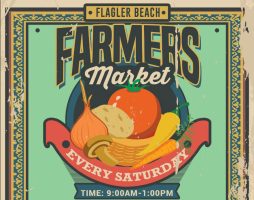
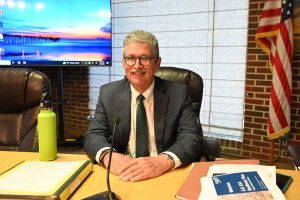
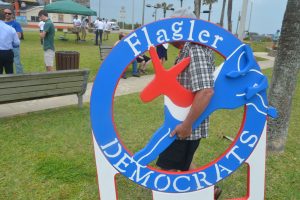

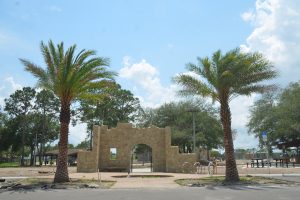
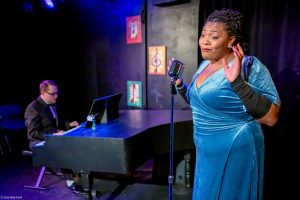


























Leave a Reply